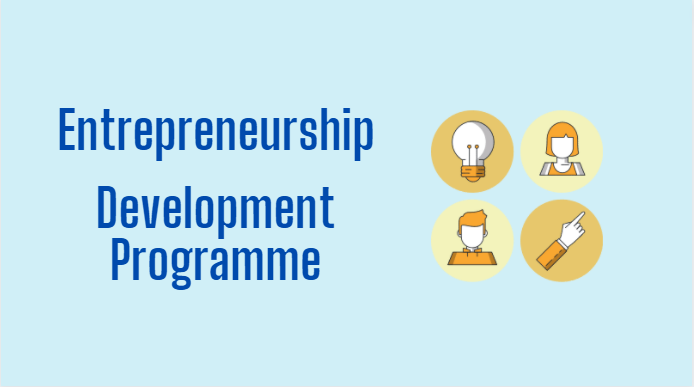Empowering Innovators: The Significance of Entrepreneurship Development Programs
Empowering Innovators: The Significance of Entrepreneurship Development Programs https://theraise.eu/wp-content/uploads/2023/07/Entrepreneurship-Development-Programme.png 694 387 RAISE fosters startup growth and scale-up within and across Europe https://theraise.eu/wp-content/uploads/2023/07/Entrepreneurship-Development-Programme.pngEntrepreneurship is the backbone of economic growth and innovation, propelling societies forward by fostering creativity, job creation, and technological advancements. In recent years, the importance of nurturing entrepreneurial talent has gained recognition, leading to the establishment of Entrepreneurship Development Programs (EDPs). This article explores the significance of EDPs in empowering aspiring entrepreneurs and driving socio-economic development.
Understanding Entrepreneurship Development Programs (EDPs)
Entrepreneurship Development Programs are structured initiatives designed to equip individuals with the knowledge, skills, and resources necessary to start, manage, and grow successful ventures. These programs aim to cultivate a culture of entrepreneurship by supporting potential innovators at various stages of their entrepreneurial journey.
Key Components of EDPs
- Education and Training: EDPs provide comprehensive education and training on various aspects of entrepreneurship, including business planning, financial management, marketing strategies, and leadership skills. Participants learn from experienced mentors and industry experts, gaining valuable insights into the complexities of running a business.
- Mentorship and Networking: EDPs often facilitate mentorship opportunities, connecting aspiring entrepreneurs with seasoned business leaders. Mentorship provides valuable guidance, enabling participants to navigate challenges, avoid pitfalls, and make informed decisions. Additionally, EDPs foster networking among participants, encouraging collaboration and knowledge sharing.
- Access to Finance: Many EDPs offer support in securing funding for startups. They connect entrepreneurs with investors, venture capitalists, or provide access to government funding schemes, making capital more accessible to promising ventures.
- Incubation and Acceleration: Some EDPs include incubation and acceleration programs that provide physical office space, infrastructure, and business support services. These resources nurture startups during their initial phases, fostering growth and stability.
- Business Development and Market Access: EDPs often assist entrepreneurs in refining their business models and developing market-ready products or services. They may also facilitate market access and help entrepreneurs establish partnerships with potential customers or collaborators.
Significance and Impact of EDPs
- Fostering Entrepreneurial Mindset: EDPs play a crucial role in instilling an entrepreneurial mindset, encouraging individuals to embrace innovation, take calculated risks, and identify opportunities for growth and impact.
- Job Creation: Successful startups emerging from EDPs create job opportunities, reducing unemployment rates and contributing to local and national economic growth.
- Economic Diversification: Entrepreneurship development leads to a diverse range of new businesses, reducing dependence on a few industries and promoting economic resilience.
- Technological Advancements: EDPs often nurture tech-based startups, driving technological advancements that benefit various sectors and enhance overall competitiveness.
- Regional Development: EDPs that focus on entrepreneurship in underdeveloped regions can spur local economic development, fostering prosperity and improving living standards.
Entrepreneurship Development Programs play a pivotal role in shaping the future of societies by empowering individuals to become dynamic entrepreneurs. Through education, mentorship, access to finance, and other essential components, EDPs pave the way for innovative ventures that drive economic growth, job creation, and technological advancements. As these programs continue to gain momentum, governments, institutions, and industry leaders must work together to foster an entrepreneurial ecosystem that nurtures and supports aspiring innovators, propelling us towards a more prosperous and sustainable future.
Headline picture: iBusinessMotivation









